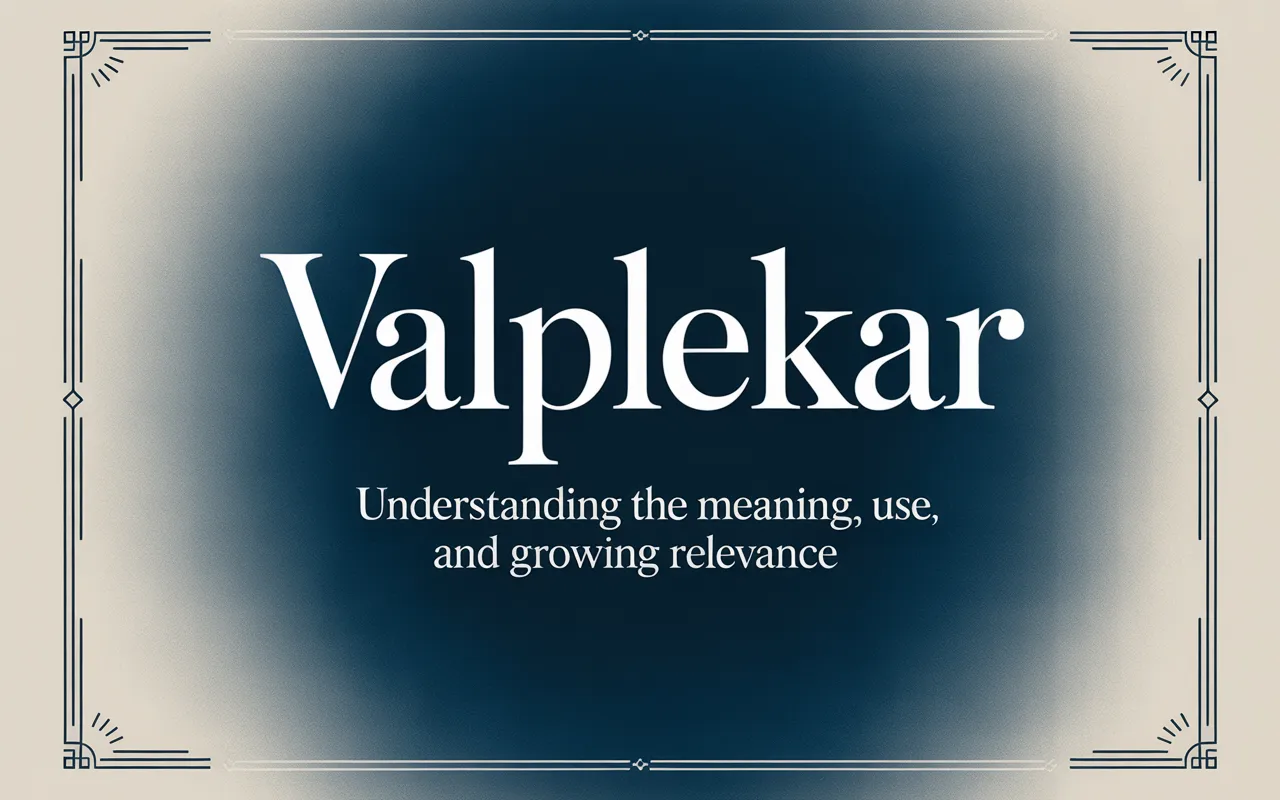Valplekar is a modern, emerging term that has recently gained attention across digital platforms, online discussions, and niche content spaces. While it does not yet have a universally accepted definition, valplekar is increasingly used to describe a concept associated with innovation, adaptability, and evolving digital culture. Its flexible nature allows it to be interpreted in different ways depending on context, making it both unique and versatile.
In many cases, valplekar is referenced as a conceptual term rather than a fixed idea. It often represents a system, mindset, or approach focused on efficiency, personalization, and forward-thinking strategies. Because of this, the word has found relevance in areas such as technology blogs, creative branding, online communities, and experimental projects. Its ambiguity gives creators freedom to shape its meaning according to their goals.
One of the reasons valplekar is gaining popularity is its distinctive identity. In a digital environment crowded with repetitive keywords and overused phrases, original terms stand out. Valplekar offers that originality. For brands, writers, and developers, using a term like valplekar helps establish a unique presence while avoiding heavy competition in search results. This makes it particularly attractive for SEO-focused content and new online ventures.
From a cultural perspective, valplekar reflects how language evolves on the internet. New words are often created to describe ideas that existing vocabulary cannot fully capture. Valplekar fits into this pattern by acting as a placeholder for innovation, creativity, or systems that do not yet have rigid definitions. Over time, as usage increases, the term may become more refined and widely understood.
Valplekar can also be seen as a symbol of adaptability. In articles and discussions, it is sometimes used to describe tools, frameworks, or philosophies that emphasize flexibility and growth. This makes it relevant in fast-changing fields where traditional models may no longer be effective. Whether applied to digital workflows, creative processes, or online strategies, valplekar conveys a sense of progress and experimentation.
Another important aspect of valplekar is its scalability as a concept. It can be introduced as a small idea or expanded into a broader framework depending on the needs of the user. This makes it suitable for startups, personal brands, or content creators looking to define something new without limitations. Its open-ended nature encourages interpretation and discussion.
In conclusion, valplekar is an emerging term that represents originality, adaptability, and modern digital thinking. While its definition may vary, its value lies in its flexibility and uniqueness. As more creators and platforms adopt the term, valplekar has the potential to evolve into a recognized concept with meaningful applications across multiple domains. For now, it stands as a symbol of how new ideas take shape in the digital age.

